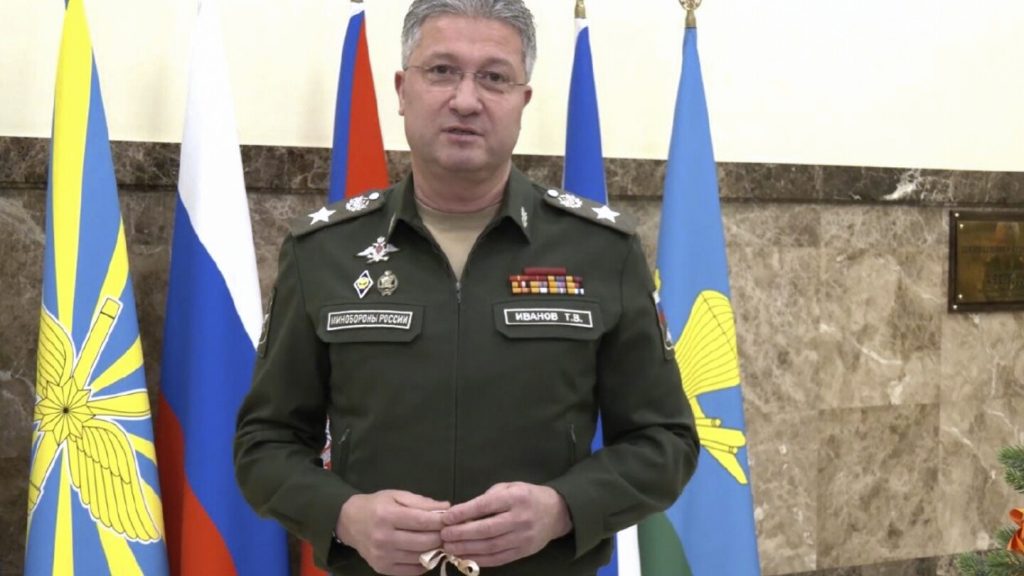The arrest of Timur Ivanov, a top Russian military official, on suspicion of accepting a bribe has raised eyebrows in Moscow as the country’s war in Ukraine enters its third year. Ivanov, 48, who was one of Russia’s deputy defense ministers, was sanctioned by both the United States and the European Union in 2022 following Russia’s invasion of Ukraine. The arrest was confirmed by Kremlin spokesman Dmitry Peskov, who stated that President Vladimir Putin and Defense Minister Sergei Shoigu were informed about the situation. The Investigative Committee, Russia’s top law enforcement agency, reported Ivanov’s detention without providing specific details of the accusations against him, mentioning only that he is suspected of taking an especially large bribe, which is a criminal offense punishable by up to 15 years in prison. Ivanov, who was appointed to his position in 2016, oversaw various aspects of the military including property management, housing, and medical support, as well as construction and reconstruction projects.
Reports indicate that Ivanov was involved in overseeing construction projects in Mariupol, a port city in Ukraine’s partially occupied Donetsk region that was heavily affected by Russian forces early in the war in 2022. The official TV channel of the Russian military, Zvezda, highlighted the construction of a residential block in the damaged city, with Ivanov being shown inspecting the construction sites. Additionally, allegations from the team of late opposition leader Alexei Navalny accused Ivanov and his family of living a lavish lifestyle filled with luxurious trips abroad, extravagant parties, and elite real estate. These allegations bring into question the source of funds to support such a lifestyle and raise concerns about corruption within the Russian military leadership.
The arrest of Ivanov comes at a critical time for Russia as it continues to face international scrutiny for its actions in Ukraine and faces sanctions from Western countries. The timing of the arrest, following the sanctions imposed on Ivanov in 2022, adds another layer of complexity to the situation. The fact that Ivanov was a high-ranking defense official overseeing key aspects of the military raises concerns about the integrity of the Russian armed forces and the potential impact of corruption on their operations. It also suggests that corruption may be more widespread within the military leadership than previously thought, leading to questions about accountability and transparency in one of Russia’s most powerful institutions.
The implications of Ivanov’s arrest extend beyond his individual case to the broader issue of corruption within the Russian military and government. The allegations against him highlight the challenges of ensuring accountability and transparency in a system known for its lack of oversight and rampant corruption. The involvement of high-ranking officials in corrupt activities undermines public trust in the government and raises concerns about the effectiveness of anti-corruption efforts in Russia. The arrest of Ivanov sends a strong message that corruption will not be tolerated within the military establishment, but it also points to the need for broader reforms to address systemic issues that enable corrupt practices to flourish.
As the investigation into Ivanov’s case unfolds, the Russian government will face increased pressure to address corruption within the military and take concrete action to hold those responsible accountable. The arrest of a top defense official sends a clear signal that the government is serious about tackling corruption, but more needs to be done to root out systemic issues that allow corrupt practices to persist. The timing of Ivanov’s arrest, amid ongoing conflict in Ukraine and increased international scrutiny, underscores the urgency of addressing corruption within the Russian military and government. The outcome of the case and the government’s response will be closely watched both domestically and internationally as a test of Russia’s commitment to combating corruption and upholding the rule of law.


